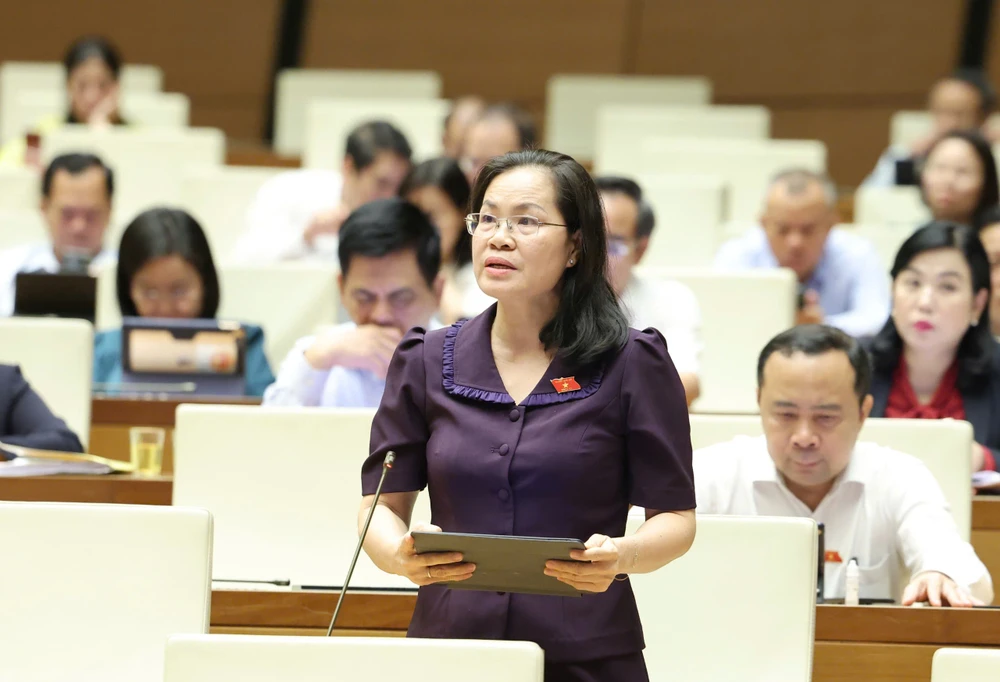
Reducing the level of government, the Prime Minister and the provincial chairman all need more power
Delegate To Van Tam (Kon Tum) commented that institutionalizing in the Constitution the continued innovation and reorganization of the political system's apparatus towards streamlining and effective and efficient operations is extremely necessary, not only to expand development space but also to demonstrate a strategic vision in the process of institutional reform and state apparatus building.
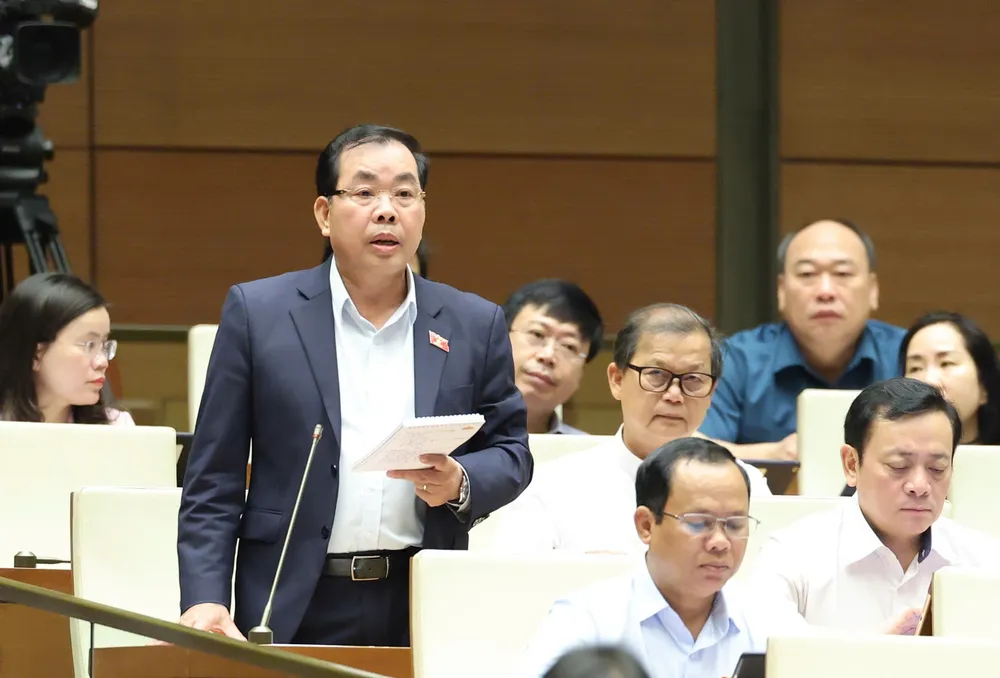
Also agreeing with the two-level local government model, Deputy Nguyen Quang Huan (Binh Duong) wanted to more clearly express the content of electing, dismissing, and transferring the chairman and vice chairman of the provincial People's Committee.
According to the delegate, institutional building must be in the direction of delegating more power to localities, but it is also necessary to decentralize more power to the Government and the Prime Minister in accordance with the spirit of Article 98 of the Constitution that the national administrative system must ensure flexible and unified management nationwide.
Specifically, Deputy Nguyen Quang Huan proposed that the draft law should stipulate that the People's Council should introduce the positions of Chairman of the People's Committee for the Prime Minister's approval. After that, the Chairman of the People's Committee can introduce the Vice Chairmen and other members for the People's Council to approve once at the beginning of the term. When there is a need to change or transfer, the Chairman of the People's Committee only needs to report to the People's Council.
Also in the direction of promoting decentralization and delegation of power, Deputy Nguyen Duy Minh (Da Nang) proposed to consider assigning the authority to the provincial People's Council to decide on the establishment, dissolution, merger, division of administrative units, adjustment of boundaries and renaming of administrative units at the commune level. This, according to the Deputy, will create favorable and flexible conditions for localities in organizing commune-level governments, in accordance with the actual situation, developments in socio-economic life, technical infrastructure and social infrastructure in the locality. In the case of communes in border areas, islands and communes bordering two provinces, the decision will be assigned to the National Assembly Standing Committee to ensure the role of control and unity in state management as well as to anticipate complex factors outside the scope of management of a locality.
Propose to consider assigning authority to the Provincial People's Council to decide on the establishment, dissolution, merger, division of administrative units, adjustment of boundaries and renaming of administrative units at the commune level.
Delegate Nguyen Duy Minh (Da Nang)
With the desire to clarify the responsibilities of the People's Committee and the Chairman of the Provincial People's Committee, Deputy Do Thi Viet Ha (Bac Giang) proposed to have stricter regulations in this law or assign the Government to provide detailed regulations in the direction of strengthening the responsibility of the provincial level in directly directing and managing the resolution of issues within the tasks and powers of specialized agencies and other administrative organizations under the Provincial People's Committee, People's Committee, and Chairman of the Commune People's Committee.
Supplementing conditions and resources to ensure decentralization implementation
Deputy Trinh Xuan An (Dong Nai) acknowledged that the draft law has demonstrated a very strong spirit of decentralization and delegation of power and promoted the responsibility of People's Committees, especially the responsibility of People's Committee Chairmen at all levels, especially at the commune and ward levels. However, it is necessary to increase the number of full-time National Assembly deputies, as well as strengthen the supervision activities of People's Councils, especially at the local level, because the workload and responsibility of People's Committees at the commune level is very large. "Currently, only 3 full-time People's Council deputies at the commune level are not appropriate, it needs to be increased to 4-5 deputies," said Mr. Trinh Xuan An.
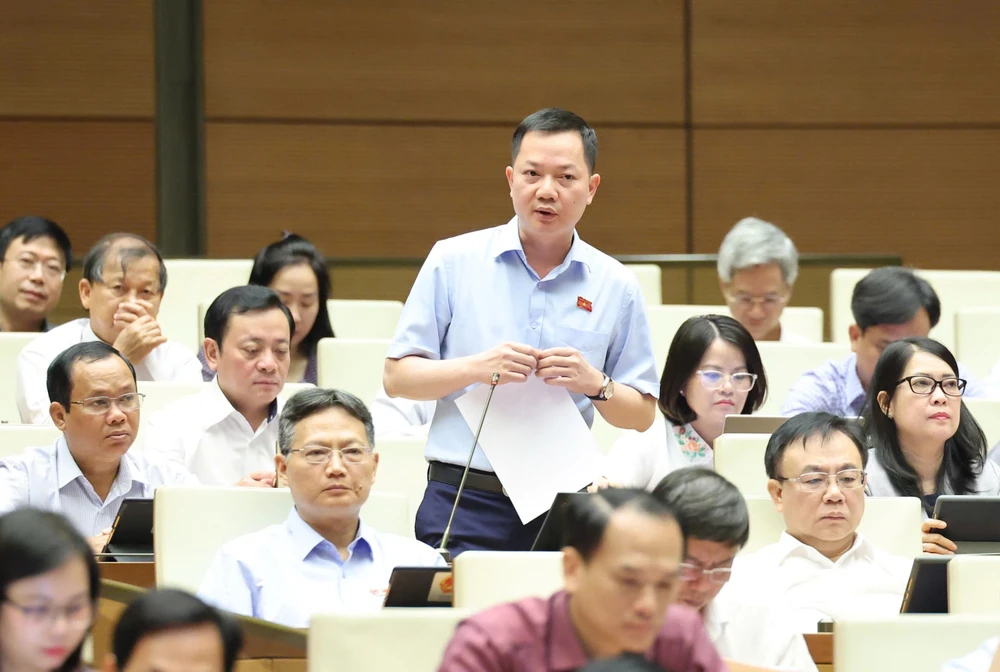
Delegate Nguyen Thi Quyen Thanh (Vinh Long) and several other Delegates also highly agreed with the content of decentralization and delegation of power in the draft Law on Organization of Local Government (amended). Delegate Quyen Thanh analyzed that it is expected that 90/99 tasks and powers of district-level local governments will be transferred to commune levels; the remaining 9 tasks and powers of district levels will be assigned to provincial levels. Therefore, it is necessary to consider adding more conditions and resources to carry out the task of ensuring decentralization from the Central Government to local governments and local governments at all levels; as well as clearly defining the accountability of the levels performing the tasks.
Delegate Nguyen Thi Hong Hanh (HCMC) commented that the draft law currently lacks provisions on cases where the Chairman of the People's Committee authorizes the Vice Chairman of the People's Committee, as stipulated in the Law on Administrative Procedures.
Regarding the number of vice chairmen of the provincial People's Council, the draft stipulates that in case the chairman of the provincial People's Council is a full-time member of the People's Council, the provincial People's Council has 1 vice chairmen of the People's Council; in case the chairman of the provincial People's Council is a part-time member of the People's Council, the provincial People's Council has 2 vice chairmen of the People's Council. However, when merging provincial administrative units, the number of vice chairmen should be considered to increase. Ms. Nguyen Thi Hong Hanh also noted that when the law comes into effect (expected on July 1, 2025), district-level agencies and units will end their duties and powers, but many documents violating the law related to the district level are still in effect; there should be clear regulations on the subjects that will perform the duties and powers in these documents when the district level no longer exists.
Source: https://www.sggp.org.vn/phan-cap-phan-quyen-can-day-du-hon-manh-me-hon-post795166.html






![[Photo] Prime Minister Pham Minh Chinh chairs conference on anti-smuggling, trade fraud, and counterfeit goods](https://vphoto.vietnam.vn/thumb/1200x675/vietnam/resource/IMAGE/2025/5/14/6cd67667e99e4248b7d4f587fd21e37c)

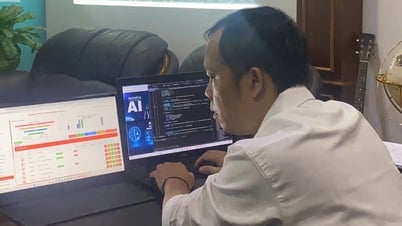
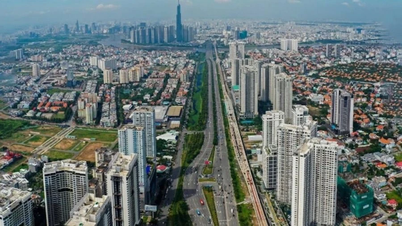

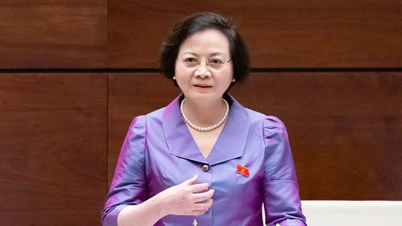

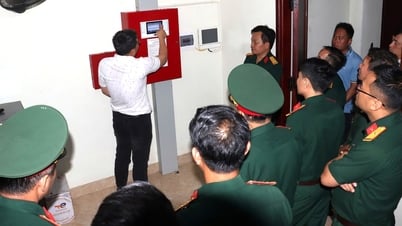





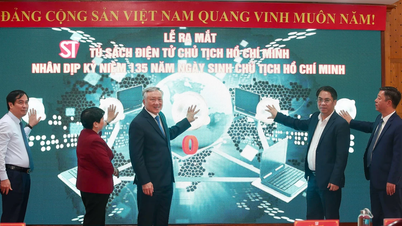
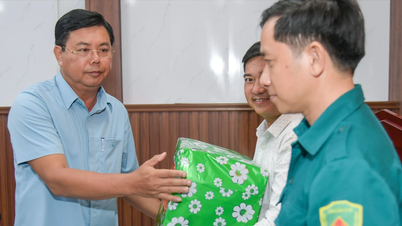

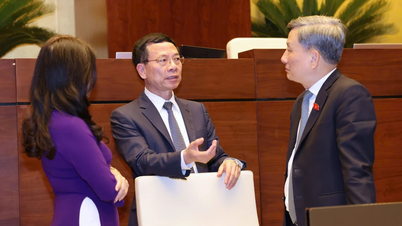
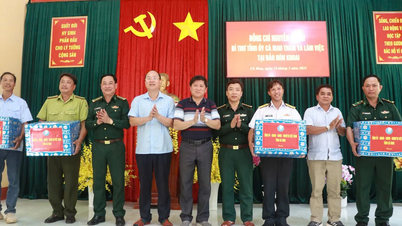



































































Comment (0)